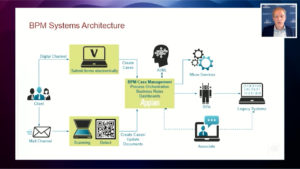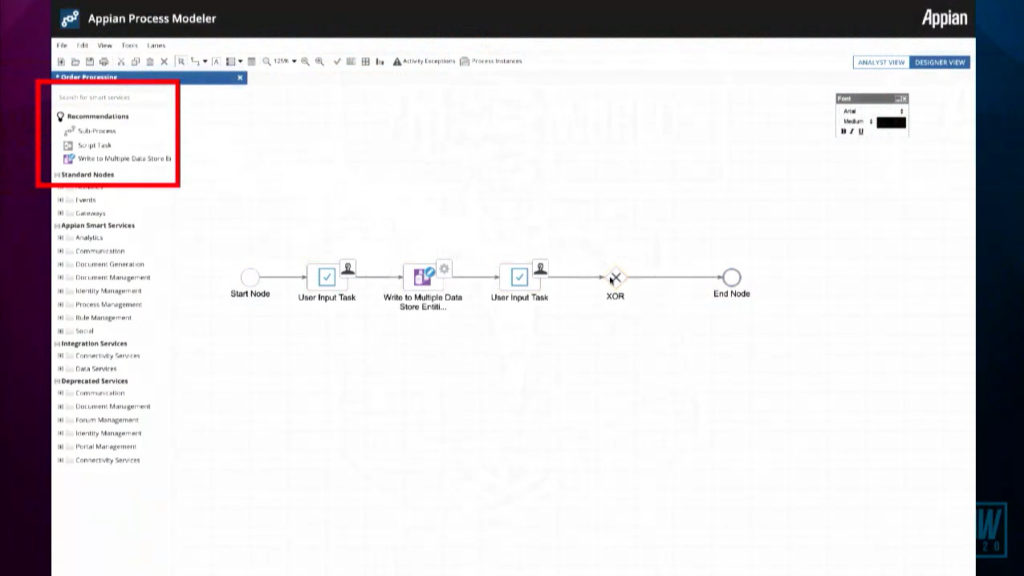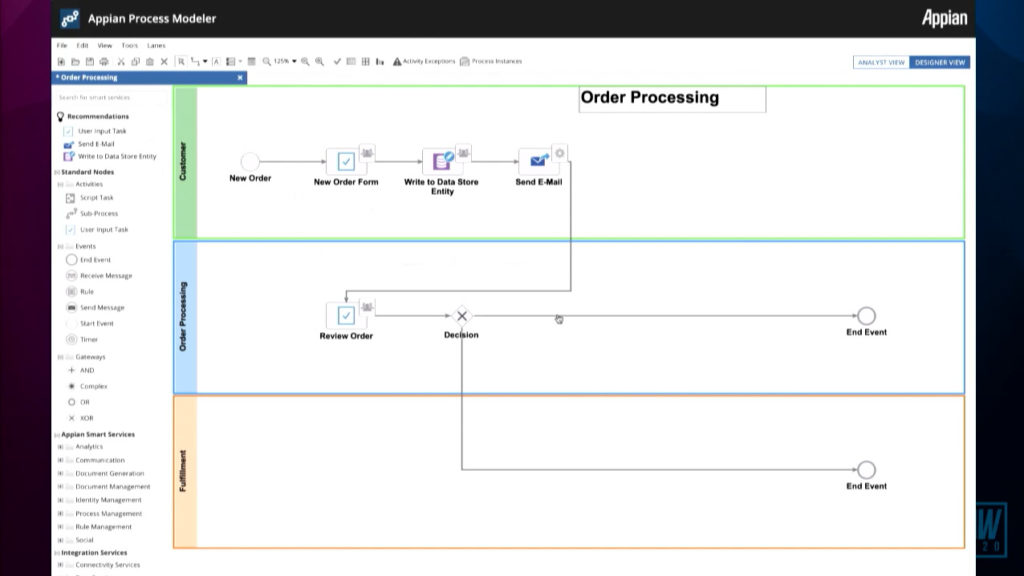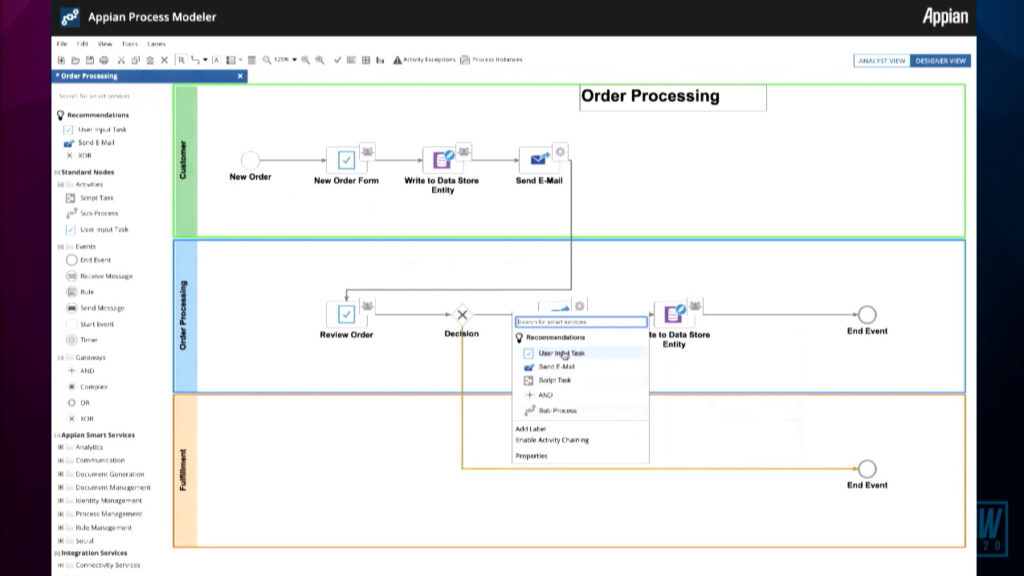The second day of the Appian World 2020 virtual conference started with CTO Michael Beckley, who immediately set me straight on something that I assumed yesterday: at least some of the keynotes were pre-recorded, not live. So their statement on their website, that keynotes are “live” from 10am-noon, and other references to “live” keynotes just means that they are being broadcast at that time, not being broadcast live. Since there’s no interaction with the audience during keynotes it’s difficult to tell, and the content of most keynotes has been well done in any case. This may have been a special case for Beckley, since he has health conditions that make him higher risk, although this was still recorded in the Appian auditorium where there would have been some number of support staff.
Beckley went into more detail on the COVID-19 apps that they have developed, with a highlight on their latest Workforce Safety and Readiness that helps to manage how workers return to a workplace. He walked through the employee view of the app, where they can record their own health check information, plus the HR manager view that allows them to set the questions, policies and information that will be seen by the employees. They’ve put this together pretty quickly using their own low-code platform, and are offering it at a reasonable price to their customers.
Next up was a customer presentation by Michael Woolley, Principal of IT Retail Systems at The Vanguard Group. They’re a huge wealth management firm spread over several countries, and they’re building Appian applications including ones that will be used by 6,000 employees. It appears that they are replacing their legacy workflow system of 20 years, which has hundreds of workflows. [I think the legacy system may be an IBM FileNet system, since I have a memory of doing some work for Vanguard over 20 years ago to develop requirements and technical design for just such a system – flashback!] They wanted to move to a modern low-code cloud platform, and although their standard workflow is pretty straightforward financial services transactional flows, they are incorporating business rules as well as BPM and case management, and RPA for interacting with legacy line of business systems. They are also planning to include AI/ML within the case management stages. He discussed their basic architecture as well as their development organization, and finished with some best practices for large projects such as this: it’s a multi-year program that covers many different workflows, so isn’t a greenfield application and has complex migration considerations.
Deputy CTO Malcolm Ross returned to follow on from his talk yesterday, when he talked about AI and RPA, to discuss how they’re improving low-code development. He showed some pretty cool AI-augmented development that they are releasing in June, which looks at the design of a process as you’re building it, and recommends the next node that you will want to add based on the current content and goals of the process. I’m definitely interested in seeing where they go with this. He had a number of detailed product updates, including cloud security, details on testing/deployment cycles for application packages, and administrative tools such as (system) Health Check. They continue to push new features into their SAIL user interface layer, making it easier for developers to create new experiences on any form factor — one of the strikes against most low-code platforms is that their UI development is not as flexible as customers require, and Appian is definitely raising the bar on what’s possible. He finished up with their multi-channel communication add-ons, which allow the use of tools such as Twilio directly within an Appian application.
The final presentation of the morning keynote was Kristie Grinnell, Global CIO and Chief Supply Chain Officer at General Dynamics Information Technology with a presentation on how they are using Appian to help manage their 30,000 employees spread over 400 customer locations. They are a government contractor, and have to manage all things around being an outsourced IT company, such as assigning people to customer projects, timesheet adjustments and invoicing, while maintaining compliance and auditability. She spoke about some of their specific Appian applications that they have developed, and the benefits: an employee pay adjustment request application (to adjust people’s pay for when they work more hours than they were paid for) reduced backlog from three weeks to three days, and reduced errors. They also developed an international travel approval app (likely not getting used much these days), since most of their employees have a high security clearance and specific risks need to be managed during travel, which reduced the approval time from days to hours. Most of their applications to date have been administrative, but they are keen to look at how applying AI/ML to their existing data can help them to make better decisions in the future.
CMO Kevin Spurway and Malcolm Ross closed the keynotes with announcements of their awards to partners, resellers, app market contributors, and hackathon winners. On an optimistic note, Spurway announced that next year’s Appian World will be in San Diego, April 11-14, 2021. Here’s hoping.
This is the end of my Appian World 2020 coverage — some good information in the keynotes. As noted yesterday, the breakout session format isn’t sufficiently compelling to have me spend time there, but if you’re an Appian customer, you’ll probably find things of interest.








